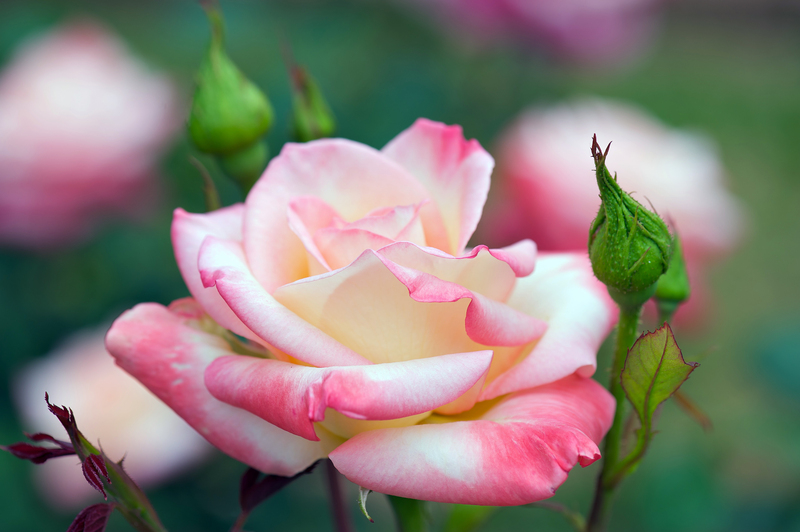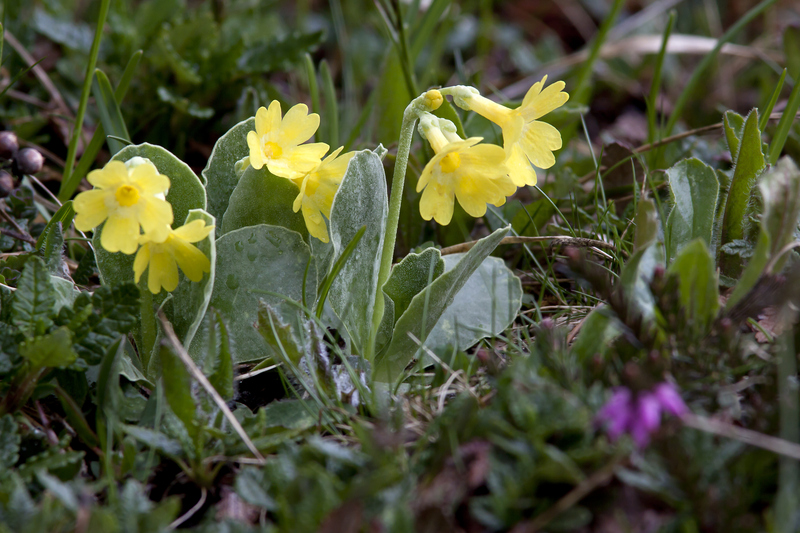9 Must-Know Gardening Tips for the Novice Gardener
Posted on 03/07/2025
9 Must-Know Gardening Tips for the Novice Gardener
If you're just starting your journey into the rewarding world of gardening, you might feel overwhelmed by the sheer amount of advice and information available online. But don't worry! Gardening for beginners is all about learning the basics, building confidence, and, most importantly, having fun. This comprehensive guide offers essential gardening tips that every novice gardener should know to grow a lush, vibrant, and healthy garden.

Why Start Gardening?
Gardening is not just a hobby--it's an activity that promotes better health, sustainability, and mental well-being. When you engage in beginner gardening practices, you'll enjoy:
- Improved physical health: Gardening is a great form of moderate exercise.
- Mental relaxation: Spending time with nature reduces stress.
- Fresh produce: Grow your own vegetables and herbs for a healthier diet.
- Environmental impact: Gardening can help support pollinators and enrich your local ecosystem.
Ready to dig into gardening basics? Let's explore the top 9 gardening secrets every beginner gardener should know.
1. Start Small and Choose the Right Location
Begin with Manageable Projects
The desire to plant an abundant, flourishing garden is understandable, but for novice gardeners, it's best to start small. A modest plot or a few well-chosen containers can help you avoid feeling overwhelmed and allow you to learn as you go. Starting small gives you a chance to hone your skills and discover which plants you love most.
- Focus on a sunny spot: Most vegetables, herbs, and flowers need at least 6 hours of sunlight per day. Observe your yard or balcony throughout the day to find these prime locations.
- Choose a location with easy access to water and close to your home for convenience.
- Consider layout for beginner-friendly plants like basil, lettuce, marigolds, and pansies.
2. Understand Your Soil
Soil is the Foundation of Gardening Success
Healthy plants start with healthy soil. Discovering your soil type--whether it's sandy, clay, silt, or loamy--can make a significant difference. New gardeners should invest time learning about their soil's texture and pH.
- Test your soil: Simple, affordable kits are available at garden centers.
- Enrich with organic matter: Mix in compost, leaf mold, or well-rotted manure to boost nutrients and improve texture.
- Add mulch to retain moisture and suppress weeds.
Improving your soil is often one of the most impactful gardening tips for beginners, as it sets the foundation for strong, productive plants.
3. Select the Right Plants
Match Plants to Your Climate and Conditions
One essential gardening tip for novices is to choose plants that are suited to your local environment and available space. Investigate your garden's USDA hardiness zone and understand the typical climate in your region.
- Sun vs. shade: Determine which parts of your space are sunny or shaded throughout the day, and plant accordingly.
- Low-maintenance options: Start with easy-to-grow plants such as tomatoes, beans, sunflowers, and lavender.
- Consult experts at local nurseries or gardening clubs for region-specific advice.
Adopting these novice gardener tips and focusing on adaptable plants increases your odds of gardening success.
4. Learn How and When to Water
Watering: Not Too Much, Not Too Little
Many beginning gardeners worry about watering--how much, how often, and when. Overwatering is a common mistake that can lead to root rot and poor growth, while underwatering can swiftly wilt your plants.
- Water deeply but less often: Aim for thorough, infrequent watering so roots grow deeper and stronger.
- Early morning is the best time to water, reducing evaporation and risk of disease.
- Use mulch to help soil retain moisture, especially during hot weather.
Observing your plants daily will help you learn their specific needs--a vital gardening skill for new gardeners.
5. Fertilize Thoughtfully
Feed Your Plants but Don't Overdo It
Healthy soil provides most of what plants need, but sometimes a targeted boost can be beneficial. Gardening beginners should use fertilizers with care, opting for natural and organic products where possible.
- Read labels carefully: Avoid applying too much fertilizer, as it can harm both plants and the environment.
- Compost, worm castings, and fish emulsion are excellent natural options for feeding your garden.
- Feed during active growing seasons--usually spring and early summer.
Remember, a little goes a long way, especially for gardening for first-timers.
6. Practice Regular Maintenance
Keep Your Garden Healthy With Consistency
Once you've set your garden in motion, maintaining it is key. Dedicating a few minutes a day for routine gardening tasks can prevent small issues from becoming big ones.
- Weed regularly: Weeds compete with your plants for water and nutrients. Remove them by hand when soil is moist.
- Deadhead flowers: Pinch off spent flowers to encourage more blooms.
- Inspect leaves for pests or signs of disease. Early intervention can save entire plants.
This is a vital beginner garden tip--stay observant and proactive.
7. Learn About Pests and Beneficial Insects
Not All Bugs Are Bad!
Many beginner gardeners quickly discover that dealing with bugs is part of the journey. However, not all insects are unwelcome--some are your garden's best friends!
- Recognize the difference: Learn to identify common pests (like aphids and slugs) and beneficial insects (like ladybugs, bees, and lacewings).
- Use natural solutions for pest control--try neem oil, insecticidal soap, or simply handpick pests off your plants.
- Encourage beneficial insects by growing a variety of native flowers and herbs.
Understanding the balance of insects in your garden is crucial for sustainable, low-maintenance gardening.
8. Keep a Garden Journal
Track Your Progress, Learn From Mistakes
Recording your garden's evolution is an excellent novice gardening hack. A garden journal lets you:
- Track what you plant, where, and when.
- Note the weather, watering schedule, and outcomes.
- Record any pest or disease issues, and how you managed them.
This record is invaluable for planning future seasons and improving upon your beginner gardening experience. Over time, you'll discover what works best in your unique garden environment.
9. Be Patient and Enjoy the Process
Gardening is a Journey, Not a Sprint
Plants need time to mature, and some failures are inevitable for all gardeners, especially at the start. The most meaningful gardening tip for beginners is to be patient and savor the process. Every mistake is a learning opportunity, and every sprout is a reward!
- Celebrate small victories--your first bloom or ripe tomato.
- Gardening helps develop patience, resilience, and a true appreciation for nature's pace.
- Connect with other gardeners for advice and encouragement, both locally and online.
Bonus Tips: Tools and Resources for New Gardeners
- Invest in essential gardening tools: a trowel, pruners, gloves, watering can, and a sturdy spade.
- Subscribe to gardening magazines, blogs, or YouTube channels for ongoing inspiration and advice.
- Participate in local gardening clubs or classes to learn and share experiences with fellow beginners.

Common Mistakes to Avoid for New Gardeners
Even armed with these simple garden tips for beginners, mistakes are natural. Here are some to look out for:
- Planting too early in the season, risking frost damage.
- Ignoring proper spacing; overcrowded plants compete for nutrients and space.
- Forgetting to label plants, making it difficult to identify seedlings.
- Letting weeds and pests get out of control by skipping regular maintenance.
Every gardener learns through trial and error--what matters is your willingness to learn and adapt.
In Conclusion: Grow Your Skills Alongside Your Garden
Gardening is a fulfilling pursuit, rich with lessons in patience, observation, and creativity. Whether your goal is to grow delicious vegetables, fragrant herbs, or colorful flowers, these 9 must-know gardening tips for novice gardeners provide a solid foundation for success. Remember to start small, prioritize soil health, select the right plants, master your watering, and always--always--enjoy the journey.
Your first garden is just the beginning. With curiosity, a bit of planning, and these essential gardening tips, you'll discover that anyone can create a green haven to call their own. Happy gardening!
Latest Posts
Save Time and Money with These Low Maintenance Garden Tricks
Steps to Protect Your Garden from High Wind Damage
Building a Garden Oasis Suitable for Dogs

